It is not very pretty, but you can use Application.SendKeys to add Watches. I have no idea if the language locale affects the shortcut keys. The below applies to English.
The limitation is you can only use things like Current Module or All Modules (i.e. scroll all the way up or all the way down), but not a specific other module for scope. You could probably fix this limitation by using the VBIDE to find out how many modules there are etc, and therefore how many times to scroll up for a particular module. I have not done this for the code below as this is a proof of concept - I leave the fun part to you :-)
Usage: call AddWatch sub with the specified arguments. You can add these to a sub you call when you start a new session, as demonstrated in my "HelloNewSession()"
The VBE must be in focus when the code is run. You can either do this manually or use the VBIDE object to set the focus.
Option Explicit
Enum enumWatchType
WatchExpression
BreakWhenTrue
BreakWhenChange
End Enum
Enum enumProceduresType
AllProcedures
Caller
End Enum
Enum enumModuleType
AllModules
CurrentModule
ThisWorkbook
End Enum
Public testVar As Boolean
Sub HelloNewSession()
AddWatch "testVar = True", AllProcedures, CurrentModule, BreakWhenTrue
testVar = True
End Sub
Sub AddWatch( _
expression As String, _
Optional proceduresType As enumProceduresType = enumProceduresType.Caller, _
Optional moduleType As enumModuleType = enumModuleType.CurrentModule, _
Optional watchType As enumWatchType = enumWatchType.WatchExpression)
Dim i As Long
Application.SendKeys "%DA"
Application.SendKeys getEscapedSendkeysText(expression)
If proceduresType = enumProceduresType.AllProcedures Then
Application.SendKeys "%p"
For i = 1 To 1000 'You could use VBIDE to count the valid types to actually scroll up the right number of times!
Application.SendKeys "{UP}"
Next
End If
If moduleType = enumModuleType.AllModules Then
Application.SendKeys "%m"
For i = 1 To 1000 'You could use VBIDE to count the valid types to actually scroll up the right number of times!
Application.SendKeys "{UP}"
Next
ElseIf moduleType = enumModuleType.ThisWorkbook Then
Application.SendKeys "%m"
For i = 1 To 1000 'You could use VBIDE to count the valid types to actually scroll up the right number of times!
Application.SendKeys "{DOWN}"
Next
End If
Select Case watchType
Case enumWatchType.WatchExpression
Application.SendKeys "%w"
Case enumWatchType.BreakWhenTrue
Application.SendKeys "%t"
Case enumWatchType.BreakWhenChange
Application.SendKeys "%c"
End Select
Application.SendKeys "~"
End Sub
Function getEscapedSendkeysText(ByVal text As String) As String
Dim char As String, i As Long
Const chars As String = "~%+^()[]"
For i = 1 To Len(chars)
char = Mid$(chars, i, 1)
text = Replace(text, char, "{" & char & "}")
Next
getEscapedSendkeysText = text
End Function
